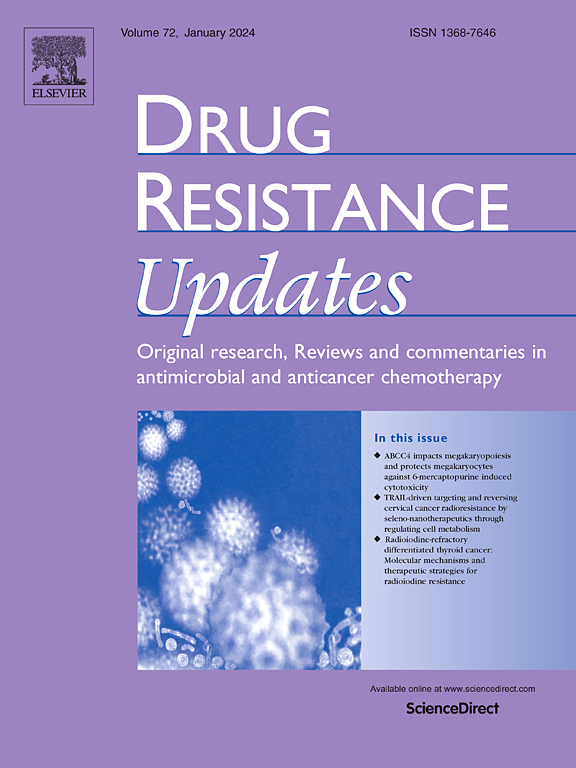RGS5+淋巴内皮细胞通过氧化应激传感机制促进乳腺癌转移和获得性耐药性的产生
IF 15.8
1区 医学
Q1 PHARMACOLOGY & PHARMACY
引用次数: 0
摘要
氧化应激反映为肿瘤生态系统中活性氧(ROS)的升高,是人类癌症的一大特征。氧化应激调控转移生态系统和抗药性的机制仍然难以捉摸。本研究旨在剖析乳腺癌早期扩散和获得性耐药性演变过程中的氧化应激传感机制。本文章由计算机程序翻译,如有差异,请以英文原文为准。
RGS5+ lymphatic endothelial cells facilitate metastasis and acquired drug resistance of breast cancer through oxidative stress-sensing mechanism
Aims
Oxidative stress reflected by elevated reactive oxygen species (ROS) in the tumor ecosystem, is a hallmark of human cancers. The mechanisms by which oxidative stress regulate the metastatic ecosystem and resistance remain elusive. This study aimed to dissect the oxidative stress-sensing machinery during the evolvement of early dissemination and acquired drug resistance in breast cancer.
Methods
Here, we constructed single-cell landscape of primary breast tumors and metastatic lymph nodes, and focused on RGS5+ endothelial cell subpopulation in breast cancer metastasis and resistance.
Results
We reported on RGS5 as a master in endothelial cells sensing oxidative stress. RGS5+ endothelial cells facilitated tumor-endothelial adhesion and transendothelial migration of breast cancer cells. Antioxidant suppressed oxidative stress-induced RGS5 expression in endothelial cells, and prevented adhesion and transendothelial migration of cancer cells. RGS5-overexpressed HLECs displayed attenuated glycolysis and oxidative phosphorylation. Drug-resistant HLECs with RGS5 overexpression conferred acquired drug resistance of breast cancer cells. Importantly, genetic knockdown of RGS5 prevented tumor growth and lymph node metastasis.
Conclusions
Our work demonstrates that RGS5 in lymphatic endothelial cells senses oxidative stress to promote breast cancer lymph node metastasis and resistance, providing a novel insight into a potentially targetable oxidative stress-sensing machinery in breast cancer treatment.
求助全文
通过发布文献求助,成功后即可免费获取论文全文。
去求助
来源期刊

Drug Resistance Updates
医学-药学
CiteScore
26.20
自引率
11.90%
发文量
32
审稿时长
29 days
期刊介绍:
Drug Resistance Updates serves as a platform for publishing original research, commentary, and expert reviews on significant advancements in drug resistance related to infectious diseases and cancer. It encompasses diverse disciplines such as molecular biology, biochemistry, cell biology, pharmacology, microbiology, preclinical therapeutics, oncology, and clinical medicine. The journal addresses both basic research and clinical aspects of drug resistance, providing insights into novel drugs and strategies to overcome resistance. Original research articles are welcomed, and review articles are authored by leaders in the field by invitation.
Articles are written by leaders in the field, in response to an invitation from the Editors, and are peer-reviewed prior to publication. Articles are clear, readable, and up-to-date, suitable for a multidisciplinary readership and include schematic diagrams and other illustrations conveying the major points of the article. The goal is to highlight recent areas of growth and put them in perspective.
*Expert reviews in clinical and basic drug resistance research in oncology and infectious disease
*Describes emerging technologies and therapies, particularly those that overcome drug resistance
*Emphasises common themes in microbial and cancer research
 求助内容:
求助内容: 应助结果提醒方式:
应助结果提醒方式:


